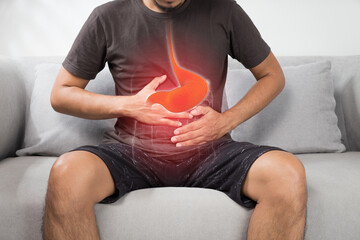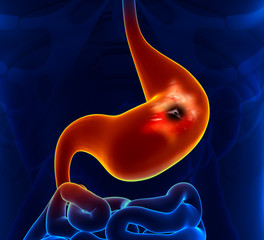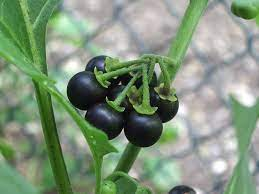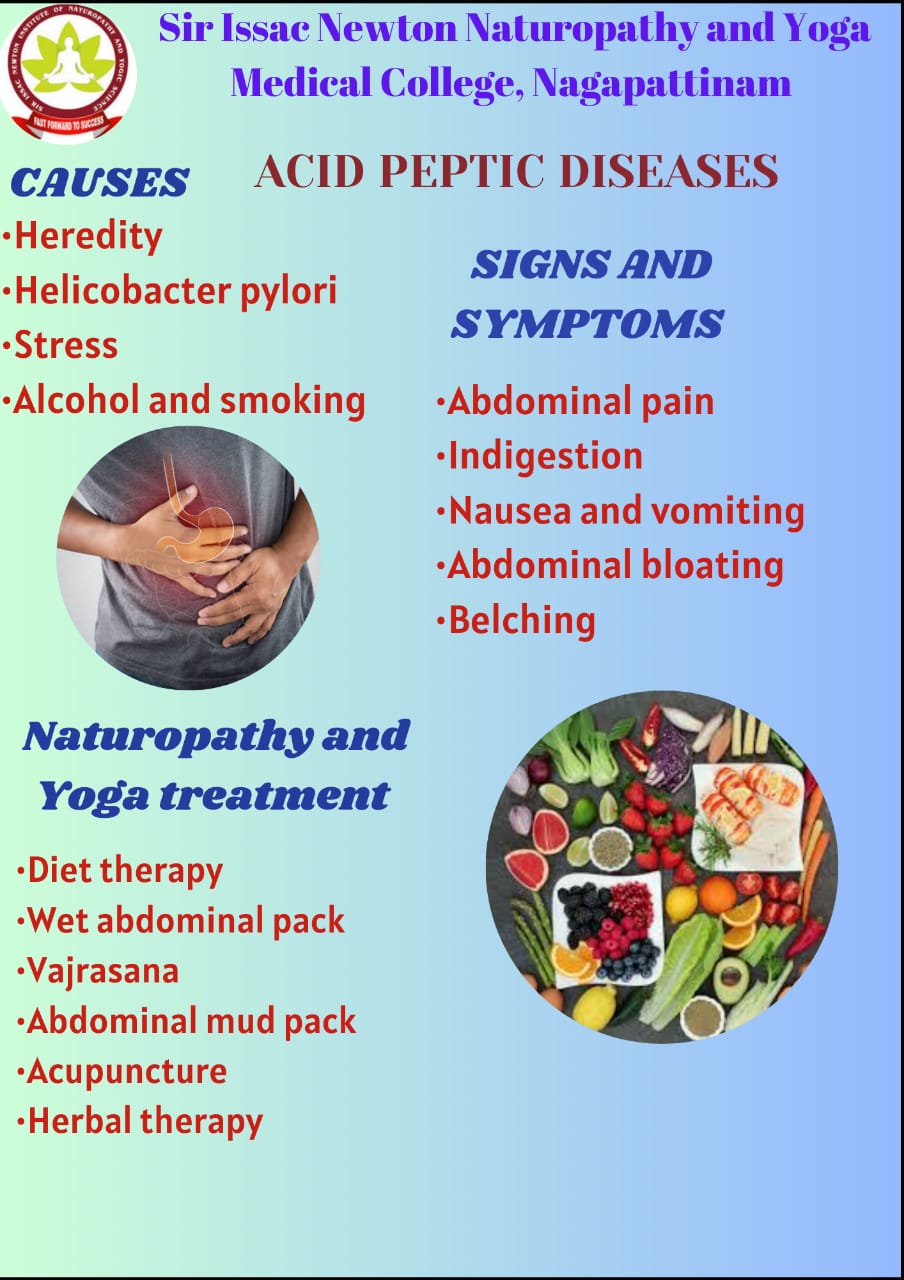Acid peptic diseases (APD) are considered as a group of diseases characterised by overlapping pathological mechanisms or an imbalance created between the acid secretion and mucosal defence mechanism, where the results manifest as gastro oesophageal reflux disease, peptic ulcer and stress related injuries to the gastric mucosa. Acid peptic diseases influence the quality of life and are considered to be one among the causes of morbidity and high rates of mortality.

CAUSES
- Heredity
- Helicobacter pylori
- Diet
- Stress
- Alcohol and smoking
- NSAIDs(Non-steroidal anti inflammatory Drugs)
- Steroids and other medicines
- Diseases such as chronic liver and kidney diseases, Zollinger-Ellison Syndrome.
SIGNS AND SYMPTOMS
- Indigestion
- Abdominal Pain
- Nausea
- Vomiting
- Fullness
- Abdominal bloating
- Belching

GENERAL CONSIDERATIONS
TO AVOID:
- Alcohol
- Smoking
- Caffeine
- High salt and refined carbohydrate consumption
- Spices (containing Capsaicin). Eg, Red Bell peppers, Paprika.
The above factors significantly increases the parietal and pepsin secretion, potassium loss and exfoliation of gastric cells.
DIET THERAPY
Diet therapy plays an important role in treatment of acid peptic diseases. Bland diet in form of porridges found to be beneficial as they dilute and neutralize stomach acids constantly. The dietary regimens in the management of APD include the intake of alkaline fruits and vegetables,vitamin U rich foods and dietary fibre in moderation and dietary fatty acids. In recent trends dietary fibres constitute various beneficial effects in the gut physiology, which include reduction in concentration of gastric bile acids, potential buffering effect, reduction in gut transit time resulting in reduction of acid secretion. The process of chewing related to dietary fibre diet suggested much more beneficial in management of APD. Dietary fibres also aid in prevention of duodenal ulcer relapse.
Vitamin U which is present abundantly in cabbages and green vegetables helps in healing of gut ulcers. It is beneficial in rapid relief of pain and reduction of ulcer crater healing time.
The dietary essential fatty acids protects the gastro duodenal mucosa against injury by converting them into prostaglandins E which are responsible for protection of gastro duodenal mucosa.
HERBAL THERAPY
Solanum nigrum : ( Black nightshade)
Solanum nigrum possess antiulcerogenic property as it blocks acid secretion through inhibition of proton pump (H+K+ATPase) and antisecretory activity by decreasing gastrin secretion.

Nigella sativa:( Black Cumin seed)
Nigella sativa possess various properties like anti-oxidant, anti-inflamatory, anti –histaminic, anti-schistosomiasis, anti-ulcer due to presence of various phytochemicals such as nigellidine, nigellicine, thymoquinone, dithymoquinone, carvacrol and thymol. N. sativa decreases the number of mast cells, gastric erosions and also shows a significant reduction in histamine levels, proinflammatory cytokines and myeloperoxidase activity.
YOGA THERAPY
- Vajrasana
- Cooling pranayama- Sheetali pranayama, Sheetkari pranayama
- Prithvi mudra
- Vayu mudra
- Relaxation techniques
HYDROTHERAPY
- Cold water sipping
- Wet abdominal pack
- Kidney pack
ACUPUNCTURE THERAPY
LI-4, Du-20, SP-4, SP-6, ST-21, ST-25, ST-36, P-6, UB-21, Ren-12, Liv-13, GB-25
MUD THERAPY
Abdominal mud packs
- Duration – 20 to 30 mins
Eye packs
- Duration – 20 to 30 mins
Conclusion
“Avoid hurry, worry and curry!”
Yoga and naturopathy treatments have significantly improved the symptoms of APD and as well cured. These therapies can be added to the conventional care under the guidance of yoga and naturopathy medical professionals for better mental and physical well-being.

Leave a comment